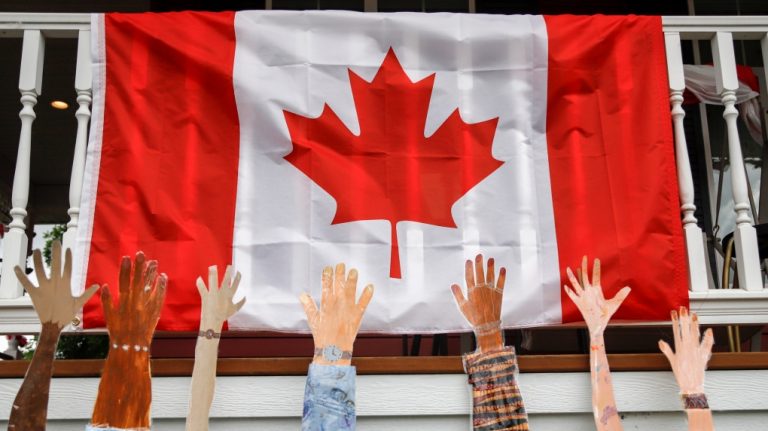Imagine being the boss of a successful company, generating millions of dollars in revenue annually. Then, you get faced with a challenge. Majority of the workers in a particular department of the company, who mostly speak French language, rather than English language, decide to quit their jobs. The reason being that they believe their language and culture is not represented enough, hence they feel left out.
As the executive manager, you try re-assuring them that there is no major reason to leave. In addition, you remind them of the policy of the company in place which respects and acknowledges the two languages and their diversity. Also, you state how valuable their contribution is, towards the success of the company. However, they are still not convinced and some still want to quit their jobs. That is similar to the issue with Quebec’s purposed separation from Canada.
In the early 1960’s, the Quebec Liberal party appointed Jean Lesage as its leader, and a new nationalist movement was created. This led to the Quiet revolution. The idea was well favoured by the middle class of the educated Québécois. Later on, the government created institutions and corporations to provide job opportunities for French-speaking citizens.
Although Quebec withdrew from the Canadian government’s shared-cost programs, the province still made demands for tax revenue and administrative power concerning domestic and foreign issues. This resulted in a political dilemma faced by the Canadian federation. Then, in 1967, former French President; Charles de Gaulle adopted the slogan “Vive le Quebec Libre” which meant “long live free Quebec” during a speech to show his support for the independence of Quebec as a nation.; This was considered controversial by some people. This mattered because it indicated that some political leaders of other countries were in support of Quebec’s secession from Canada. It could have been perceived that the French President was taking sides with Quebec, further alienating the province from the rest of Canada, while boosting their morale for the demands of their separation and nationalism.
In that era, the province’s sovereignty movement and the Parti Québécois, also known as PQ, were formed in 1968, giving rise to a more active nationalist movement taking place. The political party was created by journalist René Lévesque and some French-Canadian separatists who were agitating for the secession of the Quebec province from the rest of Canada.
Later on, in 1995, Quebec residents were asked a question to vote if they were in support of the sovereignty partnership between Quebec and Canada. This also turned out to be unsuccessful as the outcome showed that 51% of the people said ‘no’, while 49% of the people said ‘yes’.
I believe that Quebec’s intended separation would not be worth it as it would be considered unconstitutional, in addition to causing disunity and discord with the rest of Canada.
When the people of Quebec withdraw from being among the provinces of Canada, it would be more costly in terms of funding. This would be due to the allocated funding that would be cut off from the Federal government, thus leaving the province to fend for itself in areas of spending by paying public workers, creating infrastructures, maintaining law and order, providing public amenities for its citizens etc.
The separation of the province of Quebec from Canada would not be an advantage to the province, instead it will create more complications. In 2006, the Canadian federal government passed a motion recognizing that “Quebecers form a nation within a united Canada.”
Quebec has been fighting since confederation to ensure its language and cultural identity does not get suppressed or ignored. The province has been making progress towards that by creating “Assemblée Nationale du Québec”, the provincial capital building. Quebec has a population of eight million people, while the remaining provinces of Canada have a population of twenty-seven million people. I think that seceding on the basis that, “the rest of Canada does not use the same language” would not be the best option as it would leave the province in between the U.S.A and the remaining provinces of Canada. This could thereby result in the province being an ‘‘island” of its own.
I do not support Quebec’s separation from Canada because the ruling party has several key members of parliament from Quebec province and this could cause confusion. If a succession takes place, the members of parliament from Quebec could be excluded, causing the current governing party to lose its majority. Likewise, the members of the Supreme Court and Senate from Quebec have higher chances of losing their authority and status. This would mean that they would be forced out of the position of their office due to the separation.
Similarly, a large number of federal bureaucrats would claim to be a part of Quebec. I think it would make it difficult to assure the rest of Canada and maintain the confidence of the equality and impartiality of the members of the federal government negotiators. While it is understood that the people of Quebec would like to be independent due to differences in language and feelings of estrangement, I believe that the government can find a way to make the people in the province feel inclusive.
Yes, it is affirmative that Canada is a bilingual country and acknowledges French, the majority language of Quebec. I could suggest that the Federal government promotes the province by having a particular day to celebrate the uniqueness of Quebec and recognizing the past leaders, while also celebrating the history of Quebec throughout Canada. By doing this, it will prove to the people that they can be real and proud of their language, culture and identity without feeling secluded. This would be as a result of embracing and appreciating their diversity with the rest of the country.
I would also suggest providing more opportunities in investments, building infrastructures, while making lives better for the people. I believe that through this way, the people of Quebec will feel more secure and assured that the government cares and shows concern about their development and well-being.
While also responding to other issues concerning the province, there will be higher confidence in the government, which will avert their plans of secession. I could also suggest using methods of mediation through speaking and persuading the majority leaders in the province that growth and progress is better achieved when united as a country.
Sources
“History of Quebec Nationalism” https://www.sutori.com/story/history-of-quebec-nationalism–seDTy2orw5pr7LFZddwcNGxS
“Eastern Townships” https://www.britannica.com/place/Eastern-Townships
“How did Quebec’s nationalist movement become so white?” https://www.theguardian.com/world/2018/jul/12/how-did-quebecs-nationalist-movement-become-so-white
“Quebec’s nationalism push poses an election challenge for Justin Trudeau”
https://globalnews.ca/news/7902066/quebec-language-reform-bill-96-election-challenge-justin-trudeau/
“Should Quebec be granted sovereignty from the rest of Canada?”
https://canada.isidewith.com/poll/292656091
“Parti Québécois” https://www.britannica.com/topic/Parti-Quebecois
“The Quiet Revolution to the Present” https://www.britannica.com/place/Quebec-province/The-Quiet-Revolution-to-the-present
“If Quebec separates from Canada, will other provinces of Canada follow Quebec in separating from Canada?”



